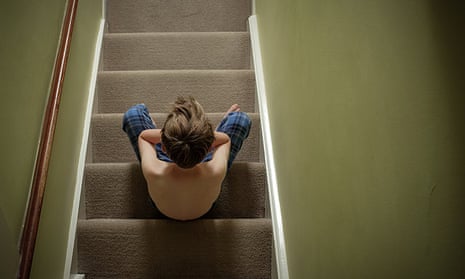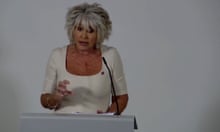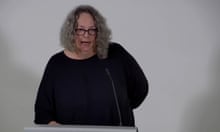When times are tough, those without a voice are destined to lose out. With no vote, no power and no say, children are easy to ignore when it comes to divvying up dwindling resources.
Councils have already said they may not be able to meet basic obligations to schools, such as checking staff for criminal records and making buildings asbestos-free.
But that’s just the tip of the iceberg.
As a former children’s minister I’ve seen first-hand that children’s social care is hugely challenging. Social workers step in where other services can’t. They work with children who have been let down by other adults, and with families in crisis.
Recently, though, it’s become clear that local authorities are increasingly unable to meet demand for services. Growing awareness of the scale of child sexual abuse and exploitation has led to more children coming to the attention of professionals, which of course is a good thing. It has also had a significant impact on resources. Overall, the number of children on a child protection plan rose by almost 30% between 2010-11 and 2015-16. For context, local authority costs for children’s services rose by just 2% in the same period, and overall local authority expenditure dropped by more than 21%.
I have just chaired a cross-party inquiry into children’s social care, supported by the National Children’s Bureau. We repeatedly heard evidence that in order to fund services for those children most at risk, other types of support are being cut. In the current economic climate, it comes down to a zero-sum game. Protecting children in immediate danger has to take precedence, leaving little left for early intervention or preventive services.
Strikingly, in a survey conducted for the inquiry, 89% of directors of children’s social services reported finding it increasingly challenging to fulfil their statutory duties towards children who need help to achieve or maintain a “reasonable” level of health and development. This includes children who are disabled, those whose parents are in crisis and children who may be at risk of harm.
But of course failure to act early has consequences. Problems can escalate, meaning children will need more significant (and costly) help later on. There are signs that this is happening already. Between 2010-11 and 2015-16, the number of children taken into care rose by almost 17% and is now at its highest since 1985.
Back in 2011, the Munro Review of Child Protection (which I commissioned while minister for children and families) recommended that the government introduce a new duty on local authorities and others to provide early-help services for children, young people and families.
Today, this seems even more important. Significantly, though, national government must also provide protected funding, so that alongside tackling abuse, we can also intervene early, to help families stay together and give children the best possible chance of a positive future.
Alongside resource constraints, our inquiry also identified another significant area of concern in children’s social care. We found that there is huge variation in the way in which local authorities decide to support the most vulnerable children. Perhaps most strikingly, the proportion of children in care varies from just 22 per 10,000 in one local authority to 164 per 10,000 in another. This cannot simply be explained by differences in deprivation – it points instead to variation in policy and practice. Given we know that children in care are far less likely to gain good GCSEs and to go to university, and more likely to have poor physical and mental health, such a postcode lottery is deeply worrying.
It’s clear to me that the government’s priority should be to improve standards of care for all vulnerable children in our society. For this reason I strongly opposed plans to allow local authorities to opt out of statutory duties towards children and families for up to six years. This would have risked entrenching and legitimising the fact that children in one borough aren’t getting the same quality of care as children in the neighbouring borough.
I applaud ministers’ brave decision this week to drop these misguided and potentially dangerous proposals. We’ve stepped back from a cliff edge that threatened the whole fabric of children’s social care legislation.
This doesn’t mean, however, that nothing needs to change. We know that the system is failing far too many children. Innovation is essential for driving improvement, and we should continue to support local authorities in finding better ways to meet the needs of their population.
Crucially, we should put effort and resources into spreading good practice so that children across the country can benefit. What we should never do is endanger the sanctity of universal legal entitlements. Children and families must know that their rights under the law are the same, no matter where they live. Equally, every local authority must be held to account in meeting a fundamental set of duties.
The government has made the right choice. The next question is where we go from here. I urge ministers to focus on two key themes. First, realistic resourcing of all children’s services, from prevention to early help for families, to care and child protection; and second, tackling the stark variation in standards across the country.










